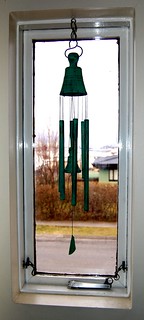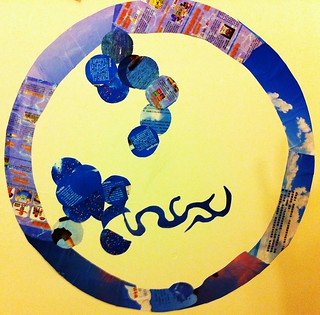| Feng shui wind chime (Photo credit: UnnarYmir) |
2. Let In the Light - Feng Shui is about energy, and opening things up to a good flow of energy. Light is an important component of this. Emphasize natural lighting wherever you can, and use energy-efficient bulbs that have a daylight type of spectrum. In the evening, soft lighting is recommended. Light candles and use low-wattage bulbs in lamps.
3. Bring In Fresh Air - In addition to natural light, natural, fresh air is also helpful is bringing good energy flow and healthy air into your home. Whenever weather permits, let outside air in. Consider a quiet air purifier and toxin-absorbing houseplants to make your indoor air even cleaner.
You can also purify the air by using natural essential oils. In Feng Shui, essential oil of rose, lavender or jasmine is recommended for the bedroom; peppermint or lemon for rooms where you want to be awake and energized. Don't use oils or air fresheners with synthetic fragrances, as these can be bad for your health.
4. Include Water - Having a water feature in the home is an important aspect of Feng Shui. Water in the home's entryway is especially beneficial. A wall or tabletop fountain can fill this need. The water should be running; just a bowl of water won't do.
| Feng Shui Designs (Photo credit: IDEAleemade) |
6. Consider the Wall Colors - Soft pink is considered ideal for the bedroom. Soft shades of purple are also good for promoting relaxation. Use red in rooms where a lot of activity occurs and you want an energized atmosphere. (Red is not recommended for a wall color, however, or use only as an accent color.) Yellow is good for intellectual stimulation and promoting happiness.
By following these tips, you'll find your home is a healthy and peaceful place where you love to be!
Remember to also make sure to remove toxic elements from your home first! If you're sick, you won't be able to appreciate the peace and beauty you've created.



No comments:
Post a Comment